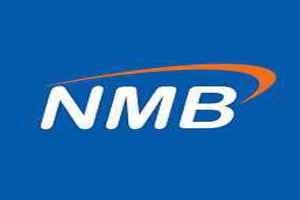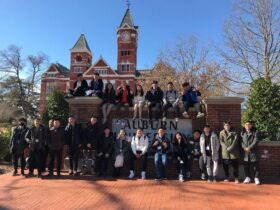Job Vacancies
Team Assistant
Job #: req2111
Organization: World Bank
Sector: Administration/Office Support
Grade: GB
Term Duration: 3 years 0 months
Recruitment Type: Local Recruitment
Location: Dar Es Salaam, Tanzania
Required Language(s):
Preferred Language(s):
Closing Date: 3/15/2019 (MM/DD/YYYY) at 11:59pm UTC
Description
Established in 1944, the WBG is one of the world’s largest sources of funding and knowledge for development solutions. In fiscal year 2018, the WBG committed $67 billion in loans, grants, equity investments and guarantees to its members and private businesses, of which $24 billion was concessional finance to its poorest members. It is governed by 188-member countries and delivers services out of 120 offices with nearly 15,000 staff located globally.
The WBG consists of five specialized institutions: the International Bank for Reconstruction and Development (IBRD), the International Development Association (IDA), the International Finance Corporation (IFC), the Multilateral Investment Guarantee Agency (MIGA), and the International Centre for the Settlement of Investment Disputes (ICSID). The World Bank is organized into six client-facing Regional Vice-Presidencies, several corporate functions and thirteen Global Practices to bring best-in-class knowledge and solutions to regional and country clients.
The World Bank, the leading multi-lateral institution in global economic development, is seeking to hire a highly organized and energized professional capable of operating effectively and discreetly in a very demanding, fast-paced and culturally diverse environment, to work as a Team Assistant. S/he will be a member of the Team’s Administrative Client Support (ACS) staff recruited locally and based in Dar es Salaam, Tanzania. S/he will be expected to provide a full range of support to the Country Management Unit, with the highest level of professionalism, diplomacy, tact and discretion. The Team Assistant will report to the Senior Executive Assistant based in the Office of the Country Director.
The successful candidate will work under the leadership of the Country Representative and the day to day supervision of the Senior Executive Assistant and Program Leader who provide supervision and guidance to the ACS (administrative client support) staff. Selected candidate will provide administrative and client support to the Operational Staff. The job implies frequent interaction with other institutional units, staff in other locations (locally and internationally), Government officials, consultants and external organizations.
Duties and Accountabilities
The Team Assistant’s duties and accountabilities include, but are not limited to, the following:
(i) Operational and administrative support
- Use desktop processing skills to produce complex texts, reports, presentations, charts, figures, graphs, etc., according to World Bank format and distribution.
- Collect and input data provided by Task Team Leaders (TTLs) into the central database, including processing new project status reports.
- Keep abreast of the Organization’s directives and ensure effective processing of all project documents.
- Draft correspondence (standard letters, memos, faxes, etc.) conforming to the Organization’s regional standards, using proper grammar, punctuation and style and proofread materials;
- Draft minutes of meetings and provide assistance in editing large documents.
- Maintain up-to-date unit project files (both paper and electronic) and retrieve data from various sources and compile these for use by the TTLs. Program Leader, Country Director and/or the Country Management Unit (CMU).
(ii) Information Management and Client interaction
- Answer internal and external queries on the assigned portfolio or, as necessary, take accurate and comprehensive telephone messages, and route them to appropriate persons to handle.
- Maintain current distribution lists, phone/address lists of project/product contacts, and distribute documents for the team.
- Co-ordinate with service units, and liaise frequently with team members both in Washington and in the Country Office;
- Track and report on appropriate aspects of the Team’s operational activities
(iii) Time management & Logistics planning
- Co-ordinate time management and schedules, taking current and future priorities into account, anticipate and monitor changes, and communicate the information;
- Track assigned tasks/project steps/ timetables using modern office management technologies, coordinate with relevant staff, provide assistance and/or information on project-related matters;
- Solve non-routine problems creatively and resourcefully and assist in preparation and logistical planning for various events, e.g. conferences, workshops, negotiations, board presentation and signing, etc.
Other duties
- Serve as a back-up to other staff and Task Team Assistants on project and administrative tasks.
- Occasionally perform Analytical tasks as may be requested by the Team Leader.
Selection Criteria
Among other criteria, the successful candidate should be holding:
- Preferably a Diploma in Secretarial Studies or Office Management or Business Administration
- Three (3) years relevant work experience in a large International or Service or Private Sector Organization;
- Proficiency in using advanced functions on Bank standard computer applications (Windows applications: Word, Excel, and PowerPoint);
- Knowledge of and ability to execute diverse work procedures related to the timely processing and production of assigned outputs and supporting administrative activities;
- Applied knowledge of Bank’s organization, procedures and practices, including Bank records management and filing procedures;
- Thorough knowledge of work procedures in assigned work unit;
- Demonstrated use of initiative and ability to make appropriate linkages in work requirements and anticipate next steps; and to follow through on team priorities in the absence of the team leader and respond to requests for information;
- Ability to pass relevant Bank tests (e.g. English language, computer applications, etc.) as required;
- Committed, dedicated and team player with ability to deal tactfully and effectively with staff and clients in a multi-cultural environment;
- Proficient Somali/English skills (verbal and written), including ability to draft routine correspondence and edit materials using proper grammar, punctuation and style;
- Effective time management and organizational skills;
- Ability to produce high-quality work under pressure.
In addition to the above selection criteria, the following competencies are expected of the successful candidate:
- Technology and systems knowledge – Demonstrates advanced knowledge and experience working with Microsoft office applications (Excel, PowerPoint, Word, etc.). Has ability and willingness to maintain up-to-date knowledge and skills as technology.
- Project and task management – Exhibits good organizational, problem-solving skills and ability to work competently with minimal supervision. Demonstrates attention to detail and quality. Has ability to manage multiple tasks and complete tasks within agreed schedule.
- Institutional policies, processes, and procedures – Demonstrates knowledge of own department’s programs and products, knows key players, understands own role. Displays understanding of WB policies and procedures relevant to the area of assigned responsibilities and is able to apply/ implement them
- Versatility and adaptability – Demonstrates flexibility and is receptive to the implementation of new solutions. Is willing to stretch own capability. Demonstrates motivation to avail and adapt oneself to effecting change.
- Client Orientation – Exhibits positive and professional client service attitude; can understand clients’ needs and complete them professionally.
- Drive for Results – Takes personal ownership and accountability to meet deadlines and achieve agreed-upon results, and has the personal organization to do so.
- Teamwork (Collaboration) and Inclusion – Collaborates with other team members and contributes productively to the team’s work and output, demonstrating respect for different points of view.
- Knowledge, Learning and Communication – Has good knowledge of official unit’s language(s). Able to write clearly, edit and proofread draft communications. Able learn and share knowledge/information across the unit.
- Business Judgment and Analytical Decision Making – Able to manage information and support retention and disposition of information and records. Can search, report, and deliver basic information from various sources and independently respond to basic inquiries.
The World Bank Group values diversity and encourages all qualified candidates who are nationals of World Bank Group member countries to apply, regardless of gender, gender identity, religion, race, ethnicity, sexual orientation, or disability. Sub-Saharan African nationals, Caribbean nationals, and female candidates are strongly encouraged to apply.
CLICK HERE TO APPLY
E T Consultant
Job #: req2207
Organization: World Bank
Sector: Urban
Grade: EC3
Term Duration: 1 year 0 months
Recruitment Type: Local Recruitment
Location: Dar Es Salaam, Tanzania
Required Language(s): English, Kiswahili
Preferred Language(s): English, Kiswahili
Closing Date: 3/19/2019 (MM/DD/YYYY) at 11:59pm UTC
THE WORLD BANK GROUP
Established in 1944, the WBG is one of the world’s largest sources of funding and knowledge for development solutions. In fiscal year 2014, the WBG committed $65.6 billion in loans, grants, equity investments and guarantees to its members and private businesses, of which $22.2 billion was concessional finance to its poorest members. It is governed by 188 member countries and delivers services out of 120 offices with nearly 15,000 staff located globally.
The WBG consists of five specialized institutions: the International Bank for Reconstruction and Development (IBRD), the International Development Association (IDA), the International Finance Corporation (IFC), the Multilateral Investment Guarantee Agency (MIGA), and the International Centre for the Settlement of Investment Disputes (ICSID). IBRD and IDA are commonly known as the World Bank, which is organized into six client-facing Regional Vice-Presidencies, several corporate functions, and – as of July 1, 2014 – has introduced fourteen Global Practices (GPs) as well as five Cross-Cutting Solution Areas (CCSAs) to bring best-in-class knowledge and solutions to regional and country clients.
THE “SOCIAL, URBAN, RURAL AND RESILIENCE” (SURR) GLOBAL PRACTICE
GSURR covers a wide Range: (i) developing green, inclusive and resilient cities; (ii) addressing the social inclusion of the poor, vulnerable and excluded groups through accountable institutions, and ensuring compliance with social safeguards; (iii) enhancing urban and rural development through supporting and managing the urban-rural transition, assisting local development through developing land tenure, management and information systems; and (iv) assisting in disaster risk management through issues of risk assessment, risk reduction (including flood management, urban drainage, coastal management, and retrofitting of infrastructure), disaster preparedness (including hydromet services, early warning systems, and civil defense), risk financing (including Development Policy Loan with Catastrophe Deferred Draw-Down Option CAT-DDO), and resilient reconstruction (including post-disaster damage and loss assessment).
AFRICA URBAN AND DISASTER RISK MANAGEMENT UNIT
Urbanization in Sub-Saharan Africa is occurring at an unprecedented pace. The share of Africans living in urban areas is projected to grow from 38 percent in 2016 to almost 60 percent by 2040, translating to an additional 40,000 new urban citizens every day until 2040. The region’s urbanization rate, one of the highest in the world, can lead to economic growth, transformation and poverty. However, many cities in Africa still have not fully captured the benefits of urbanization and poorly managed urbanization has exacerbated existing infrastructure challenges, resulting in increased inequality, urban poverty, proliferation of informal settlements and vulnerability to hazards. Adverse natural events present a serious obstacle for achieving sustainable social and economic development, particularly in vulnerable regions as Sub-Saharan Africa. Disaster affect the poor most severely; unplanned human settlements, unsafe building practices, high population densities, economic growth, and accumulations of assets in risk prone areas has dramatically increased exposure to hazards and increased disaster loss. Climate changed has the potential to significantly worsen the situation.
To this end, the Africa Urban and Disaster Risk Management Unit (GSU19), brings together a wide range of important and interrelated development and financing instruments to support national and sub-national clients to: harness urbanization and enable effective land management in support of both growth and poverty reduction; foster social inclusion of marginalized groups; support the responsiveness and fiscal, financial, and management capacities of local governments – cities, municipalities, and rural districts – to deliver local infrastructure and decentralized services; strengthen resilience and disaster risk management related to natural disasters; reduce conflict and violence; scale-up access to finance for sub-national governments; and reduce the carbon footprint of cities.
TANZANIA URBAN RESILIENCE PROGRAM (TURP)
Tanzania is the most flood affected country in the East Africa region, the impacts of flood is mostly experienced in cities/ urban areas, official disaster statistics demonstrate that in Dar es Salaam is the urban center worst affected by flooding, followed by the secondary cities of Zanzibar, Mwanza, Arusha, Mtwara and Mbeya. Flooding in the cities is caused inadequate infrastructure to accommodate storm water, degradation of natural assets (wetlands, natural drainage channels, and forested areas) which serve as open sewers and solid waste dumps, and unplanned settlement in flood prone areas. Other causes include low capacity of the local authorities and communities to take appropriate action in response to the weather forecasts and warnings issued by Tanzania Meteorological Agency (TMA).
The social and economic impacts of flooding in urban areas are adverse particularly due to the concentration of infrastructure and economic assets. With the fast-growing urbanization characterized with poor infrastructure and unplanned settlement, and the climate change which increases the intensity and frequency of flooding, the impacts of flooding are expected to be more adverse
The cities authorities that are responsible for managing disasters risks lack appropriate mechanism to reduce and cope with the increasing flood risks in terms of technical and financial capacity, contingency plans, standard operating procedures and early warning system for flood preparedness and response. Vulnerable communities residing in flood prone areas have low capacity for flood risk reduction due to poverty, lack of appropriate risk reduction knowledge and lack of community plans to prepare for and respond to floods.
Flood risks in cities such as Dar es Salaam has been largely characterized as corrective risk management – responding to the materialization of flood risk as it is created. The drivers of such a process are predominantly results of socio-economic planning decisions based on weak enforcement and land use planning systems, poor inter-institutional coordination, limited or inadequate risk information and use of decision support tools such as probabilistic risk evaluations, and limited capacity of city stakeholders to access and act upon up-to-date climate risk science.
The World Bank through Tanzania Urban Resilience Program (TURP) will work with the local authorities, other stakeholders and communities to support more preventative risk management practices though (i) risk evaluation and awareness; (ii) municipal and community level risk reduction planning; (iii) stakeholder engagement, coordination and participatory decision making; (iv) capacity building of city planning, GIS and surveying teams to use appropriate risk information; (v) integration of environmental assessments such as erosion, sedimentation processes into city town planning ; (v) climate impacts and future risk profiles.
This ET Consultant position is aimed at establishing technical support to the local authorities and communities to develop appropriate risk management and urban development with the use of disaster risk knowledge produced by other aspect of the TURP.
Duties & Accountabilities:
This position calls for a cross disciplinary approach that seeks to build the capacity of the urban government participating in the Tanzania Urban Resilience Program to adopt long term flood risk management practices. Specific duties include:
• Support the design and preparation of the Msimbazi Flood Risk Management Project, including working with the newly established Dar es Salaam City Council Project Implementation Unit, as well as coordination with its parent project the Dar es Salaam Metropolitan Development Project.
• Actively participate in regular supervision of the Msimbazi Flood Risk Management Project through technical site visits.
• Advise on and support the establishment of a Msimbazi Steering Committee, Msimbazi Planning Authority, and Msimbazi Area Development Corporation.
• Support and provide advisory services on private sector engagement for resilience related investments.
• Based on lessons learned through the implementation of the Tanzania Urban Resilience Program, provide technical inputs and advisory on the design of pipeline operations across the urban development portfolio.
• Support development of training materials and capacity building on issues relating to urban resilience across local authorities participating in the Dar es Salaam Metropolitan Development Project, Tanzania Strategic Cities Project, Urban Local Government Strengthening Project, or Zanzibar Urban Services Project.
• Support trainings in the use of risk information from TURP including exposure data mapping, services and impacted citizens mapping, hydrometeorological services, and environmental risk assessment.
• Support dissemination events and trainings relating to the use of probabilistic risk evaluations – for the cities of Dar es Salaam and Zanzibar City.
• Facilitate and manage comprehensive urban resilience dialogue with critical stakeholders. Strengthen local authorities’ partnerships and coordinate with relevant agencies, academia, the UN, and donors relating to project activities.
• Contribute to the development of a knowledge management system by disseminating lessons learnt and best practice. Promote and facilitate knowledge exchange and dissemination in disaster risk management and climate change adaptation between cities and sectors.
• Provide coaching/mentoring to junior team members, extended term consultants and junior professional associates in the unit.
Selection Criteria
• Master’s degree in urban development, disaster risk management, environmental planning, public management, or equivalent, and a minimum of 10 years of relevant experience.
• Extensive knowledge of urban development, risk management and local government in Africa.
• Experience working on complex urban risk programs involving multi-stakeholder coordination;
• Demonstrated skills to engage and effectively lead dialogues with both local communities affected by urban risks as well as city leaders and decision makers charged with action;
• Strong conceptual and research/analytical skills with the ability to rapidly analyze and integrate diverse information from varied sources into conclusion and recommendations.
• Demonstrated effective communication skills, speaking and writing, and outstanding interpersonal skills, effective team member.
• Excellent oral and written communication skills in English and Kiswahili.
• Knowledge of World Bank operational policies, practices and procedures is an asset.
Competencies:
• Dialogue Skills – Anticipates needs and requests in the field and conducts independent technical discussions with representatives of the government and non-government partners.
• Integrative Skills – Understands relevant cross-sectoral areas how they are interrelated; able to undertake cross-sectoral work in lending and non-lending operations.
• Client Orientation – Maintains client relationships in the face of conflicting demands or directions and provides evidence-based advice and solutions based on sound diagnosis and knowledge.
• Drive for Results – Identifies the needed resources to accomplish results involving multiple stakeholders and finds solutions to obstacles affecting key deliverables.
• Teamwork (Collaboration) and Inclusion – work well with the team and actively seeks and considers diverse ideas and approaches.
• Knowledge, Learning and Communication – sharing of best practice, trends, knowledge and lessons learned across units and with clients and partners, articulating ideas verbally and in writing in a clear and compelling way across audiences of varied levels.
• Good knowledge of the functioning of central and local government systems.
• Community engagement skills – clear understanding of complexities of urban communities and means of facilitating community participation in urban risk reduction initiatives
Note: The selected candidate will be offered a one-year appointment, renewable for an additional one year, at the discretion of the World Bank Group, and subject to a lifetime maximum ET Appointment of two years.
The World Bank Group values diversity and encourages all qualified candidates who are nationals of World Bank Group member countries to apply, regardless of gender, gender identity, religion, race, ethnicity, sexual orientation, or disability. Sub-Saharan African nationals, Caribbean nationals, and female candidates are strongly encouraged to apply.












